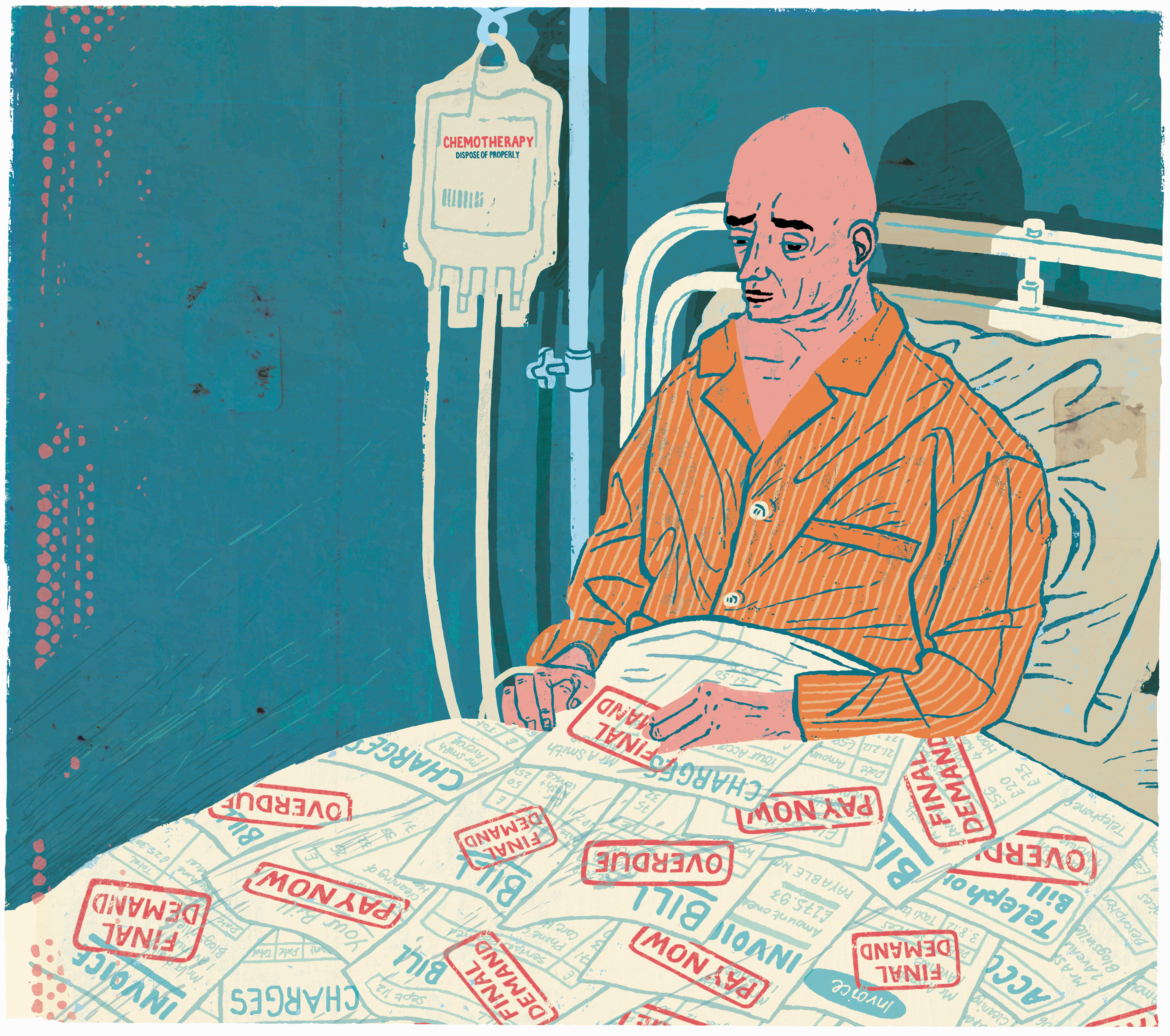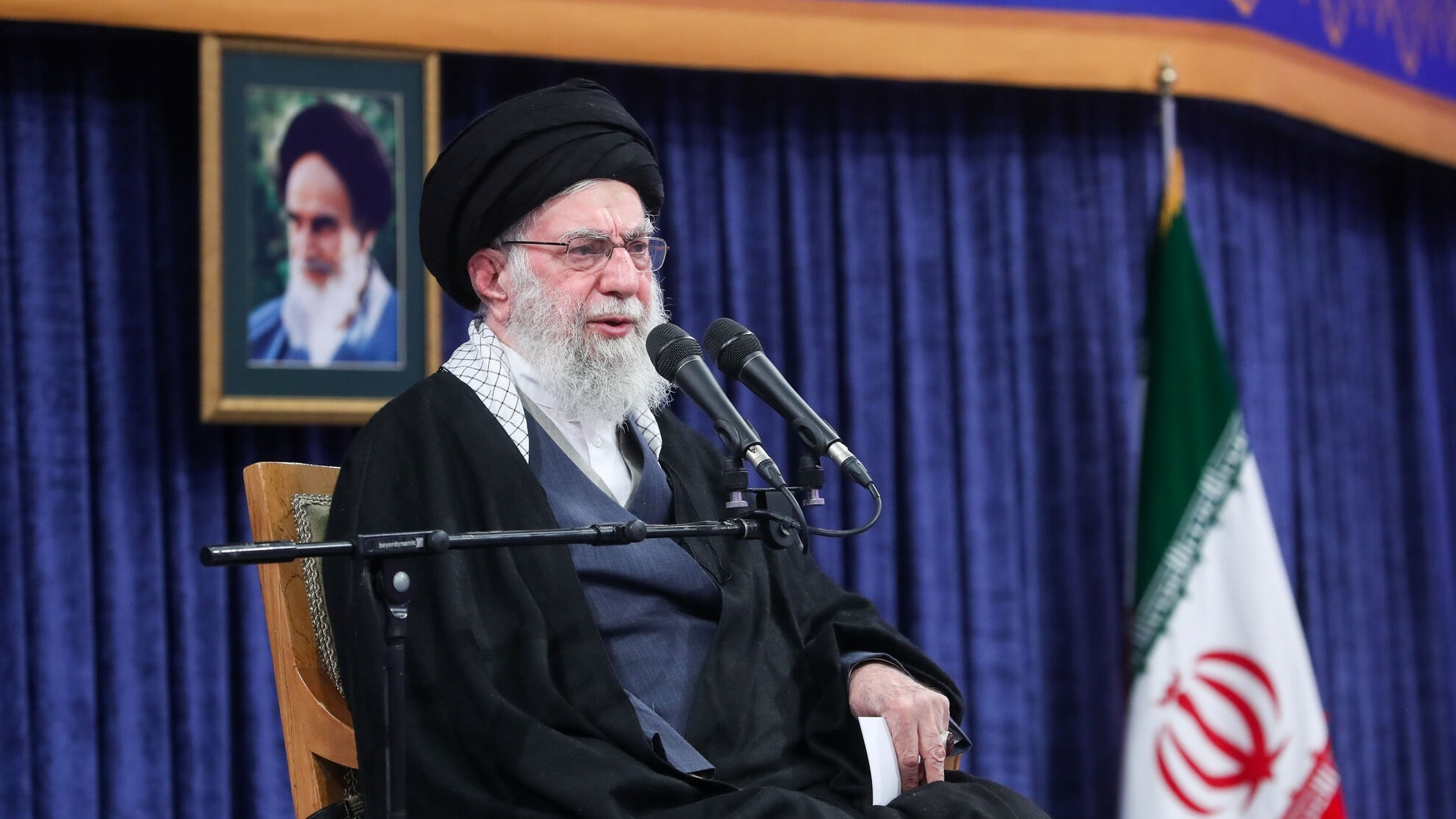The most underrated argument for single-payer health care
Health-care paperwork is a plague. Let's cure it.


If there's one constant in modern American life, it's paperwork and bills — and it's rarely worse than it is for health care. If you need some medical procedure, you are virtually guaranteed several hours of tedious form-filling, made much worse by the knowledge that if you mess up, your insurance might not cover it, and the provider will take you for all you've got.
Eradicating this needless anxiety is perhaps the most underrated argument for Medicare for all. Universal health care would make living in American society tremendously simpler and less stressful. Even for upper-middle-class people who would pay stiffly higher taxes, the price would be well worth it.
As is, America's highly fragmented mixture of private and public payers in our health insurance system has created a hellishly complicated billing process. Even simple procedures have to reckon with tens of thousands of different insurance plans, all with different coverage details. Complicated procedures can easily generate multiple pages of different billable events, every one of which has its own separate code.
The Week
Escape your echo chamber. Get the facts behind the news, plus analysis from multiple perspectives.

Sign up for The Week's Free Newsletters
From our morning news briefing to a weekly Good News Newsletter, get the best of The Week delivered directly to your inbox.
From our morning news briefing to a weekly Good News Newsletter, get the best of The Week delivered directly to your inbox.
Unsurprisingly, mistakes are absolutely rampant on both the provider and the insurer side, resulting in many mistaken bills and wrongly (or, quite often, deliberately) denied claims. The end result is a huge industry of people doing nothing but pushing paper in circles — and millions of ordinary people who are forced to become amateur claims adjusters to avoid losing their life savings due to bureaucratic error.
This is why America's medical administrative expenses are nearly triple the average of rich countries in percentage terms — a major engine behind the cost disease that is slowly destroying even supposedly good private, employer-provided plans. The Kaiser Family Foundation found that in 2017, the average single-person premium for such insurance was $6,690, while for family coverage it was $18,764. That is an increase of 49 and 55 percent, respectively, compared to 2007 (not adjusted for inflation).
Cost sharing has also increased sharply. The fraction of employer-sponsored policies with a general deductible has increased from 59 percent in 2007 to 81 percent in 2017. The average size of those deductibles has similarly increased from $616 in 2007 to $1,505 in 2017. ObamaCare, which was mainly focused on the uninsured population, slowed but did not stop these trends. Premiums and deductibles still increased by 19 percent and 37 percent, respectively, between 2012 and 2017.
Before ObamaCare, insurance companies would shift costs onto their customers with recission (that is, faking up a reason to cancel someone's coverage after they get sick) and other similar tactics. Now they accomplish the same goal with large premiums and heavy cost-sharing, plus drowning people in a blizzard of paperwork.
A free daily email with the biggest news stories of the day – and the best features from TheWeek.com
So even for people with fairly good insurance — that is, the kind that disappears if you lose your job or quit — the best-case scenario is an increasingly huge bite out of your paycheck for premiums, a boatload of paperwork, and another hefty bite when you actually have to get something done, not to mention the constant anxiety about denied claims or ending up in an out-of-network provider.
A sensible, upgraded Medicare-for-all system — meaning universal coverage, including dental and vision, with minimal or zero cost-sharing — would remove almost all the burden the current system places on individuals. No longer would anyone have to worry about eligibility, whether they've filed their Health Savings Account receipts properly, whether narrow networks mean they'll get stuck with a six-figure out-of-network bill, or having to pay thousands of dollars before the stupid insurance even kicks in.
Of course, there would still have to be a billing process. But instead of the umpteen zillion different systems, there would be only one — and one that would have the biggest possible economy of scale, large leverage to keep costs down (starting with cracking down on Medicare fraud), and no incentive to deny claims to preserve private profits.
Medicare is already far more administratively lean than private insurance due to exactly these effects. Expanding it to cover everyone would make it even better by deleting the obnoxious eligibility tests that ring-fence it and Medicaid. Today, Medicare is both highly incomplete and restricted to people over 65, necessitating a complicated enrollment process and a variety of supplemental insurance policies. Medicaid has a Byzantine means test that varies widely from state to state, and it's such a pain in the neck that many people don't even realize they're eligible. It's pointless, and costs a ton of money to boot.
High-quality, cradle-to-grave Medicare for all would remove one of America's biggest headaches, and make more time for people to actually live their lives. We've all got better things to do than fill out forms, pay bills, and fret about bankruptcy until we stroke out and die.
Ryan Cooper is a national correspondent at TheWeek.com. His work has appeared in the Washington Monthly, The New Republic, and the Washington Post.
-
 What is China doing in Latin America?
What is China doing in Latin America?Today’s Big Question Beijing offers itself as an alternative to U.S. dominance
-
 ‘One Battle After Another’ wins Critics Choice honors
‘One Battle After Another’ wins Critics Choice honorsSpeed Read Paul Thomas Anderson’s latest film, which stars Leonardo DiCaprio, won best picture at the 31st Critics Choice Awards
-
 Iran’s government rocked by protests
Iran’s government rocked by protestsSpeed Read The death toll from protests sparked by the collapse of Iran’s currency has reached at least 19
-
 Bari Weiss’ ‘60 Minutes’ scandal is about more than one report
Bari Weiss’ ‘60 Minutes’ scandal is about more than one reportIN THE SPOTLIGHT By blocking an approved segment on a controversial prison holding US deportees in El Salvador, the editor-in-chief of CBS News has become the main story
-
 Has Zohran Mamdani shown the Democrats how to win again?
Has Zohran Mamdani shown the Democrats how to win again?Today’s Big Question New York City mayoral election touted as victory for left-wing populists but moderate centrist wins elsewhere present more complex path for Democratic Party
-
 Millions turn out for anti-Trump ‘No Kings’ rallies
Millions turn out for anti-Trump ‘No Kings’ ralliesSpeed Read An estimated 7 million people participated, 2 million more than at the first ‘No Kings’ protest in June
-
 Ghislaine Maxwell: angling for a Trump pardon
Ghislaine Maxwell: angling for a Trump pardonTalking Point Convicted sex trafficker's testimony could shed new light on president's links to Jeffrey Epstein
-
 The last words and final moments of 40 presidents
The last words and final moments of 40 presidentsThe Explainer Some are eloquent quotes worthy of the holders of the highest office in the nation, and others... aren't
-
 The JFK files: the truth at last?
The JFK files: the truth at last?In The Spotlight More than 64,000 previously classified documents relating the 1963 assassination of John F. Kennedy have been released by the Trump administration
-
 'Seriously, not literally': how should the world take Donald Trump?
'Seriously, not literally': how should the world take Donald Trump?Today's big question White House rhetoric and reality look likely to become increasingly blurred
-
 Will Trump's 'madman' strategy pay off?
Will Trump's 'madman' strategy pay off?Today's Big Question Incoming US president likes to seem unpredictable but, this time round, world leaders could be wise to his playbook
